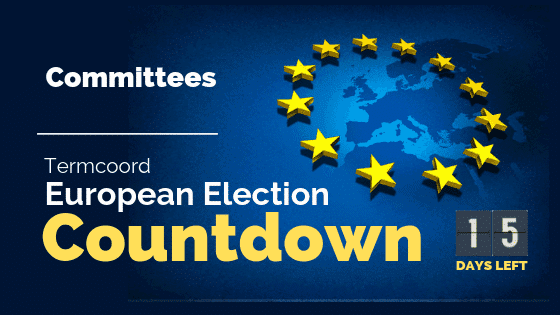
The European Parliament makes important decisions on many complex issues. To prepare the subjects to be discussed, Parliament is divided into 20 standing committees. These committees specialise in specific policy areas, such as the economy, culture or agriculture. Prominent parliamentary committees include the Committee on Foreign Affairs, the Committee on the Environment, Public Health and Food Safety, and the Committee on Budgetary Control, also known by their abbreviations: AFTE, ENVI, and CONT, respectively.
Each committee is made up of around 25 to 70 MEPs and its political composition mirrors that of Parliament as a whole. Committee members elect a chair and up to 4 vice-chairs among themselves, who form the committee bureau for a two-and-a-half-year mandate.
The Committees of the European Parliament examine new proposed legislation by amending and adopting it. They also prepare reports to be presented to the Plenary and start negotiations on amendments with the European Council. The committees meet once or twice a month in Brussels, where their debates are held in public and generally broadcast online. Their work also includes holding hearings with experts on relevant issues as well as scrutinising other EU institutions.
Parliament may also set up sub-committees or temporary special committees. It has also the power to investigate alleged maladministration of EU law by creating committees of enquiry. In 2019, following media reports on tax scandals, the European Parliament established a special committee to look at the issues of financial crime, tax evasion and tax avoidance.

Sources:
European Parliament. (n.d.). About Parliament | Committees | European Parliament. [online] Available at: https://www.europarl.europa.eu/committees/en/about-committees.html [Accessed 10 May 2019].
European Parliament. (2019). The committees. [online] Available at: http://www.europarl.europa.eu/about-parliament/en/organisation-and-rules/organisation/committees [Accessed 10 May 2019].
Iate. https://iate.europa.eu/entry/result/264809/en. Accessed May 10, 2019.
 Written by Santiago Chambó — Schuman trainee at the Terminology Coordination Unit of the European Parliament. His research interests include Terminology Management, Knowledge Representation and Environmental Sciences. He wants the EU to lead the way in ecosystem restoration and degrowth policies.
Written by Santiago Chambó — Schuman trainee at the Terminology Coordination Unit of the European Parliament. His research interests include Terminology Management, Knowledge Representation and Environmental Sciences. He wants the EU to lead the way in ecosystem restoration and degrowth policies.

